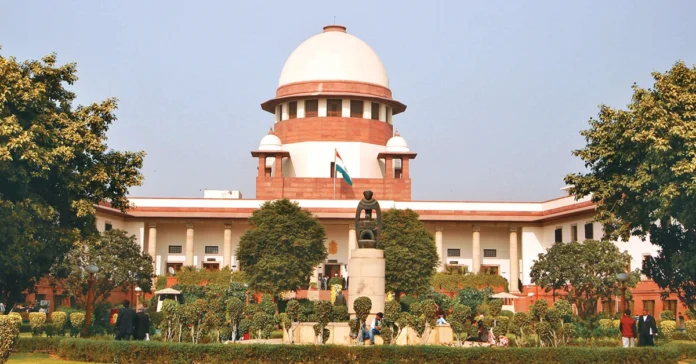The Supreme Court has ruled that reprimand by the senior at the workplace does not amount to an “intentional insult”.The Apex Court stated that warranting criminal proceedings against senior would have “disastrous consequences crippling the entire disciplinary atmosphere of the workplace.
While quashing a criminal case against the officiating director of the National Institute of Mental Health (NIMH), who was accused of insulting an assistant professor, the Bench of Justice Sanjay Karol and Justice Sandeep Mehta pointed out that proceedings under Section 504 of the Indian Penal Code (IPC) could not be invoked unless it was proven that the rebuke was intended to provoke the subordinate to commit an offence or breach public peace.
Any other interpretation may lead to gross misuse of liberty in workplaces, it added.
The offence, punishable with a jail term up to two years, has been replaced with Section 352 under the Bharatiya Nyaya Sanhita (BNS), effective from July 2024.
The complainant alleged that the NIMH Director reprimanded her in a loud voice for having submitted complaints against him to the higher authorities, which allegedly caused her emotional distress and aggravated her medical condition post-Covid-19.
After perusing the case records, the top court of the country noted that the allegations in the charge sheet were ‘purely conjectural’ and failed to meet the legal threshold required to sustain the criminal charges.
It observed that a person catering to the affairs at the helm was expected to ensure that his juniors attended their professional duties with utmost sincerity and dedication.
Since workplace discipline and professional expectations were heightened during the Covid-19 pandemic, the Director’s actions should be viewed in that context, added the Bench.
The Apex Court further noted that several complaints about workplace indiscipline and negligence were pending against the complainant.
The Director, as the head of the institution, had the authority to address concerns regarding professionalism and discipline. The reprimand was part of his administrative functions and could not be interpreted as an ‘intentional insult’ aimed at provoking the complainant into breaking public peace or committing an offence, it added.
Referring to its judgment in Fiona Shrikhande vs State of Maharashtra case, which laid down that an offence under Section 504 of IPC required the accused to have intentionally insulted another person with the knowledge that it would likely provoke the person to commit a crime, the Bench said mere use of harsh words, discourtesy or even rudeness did not meet this threshold.
The Apex Court further observed that allowing such criminal cases to proceed against senior officials for reprimanding subordinates would set a dangerous precedent and disrupt workplace discipline.
The Court recorded in its order that the intention behind such scolding was simply to control the perceived indiscipline of the subordinates, who were alleged to be shirking from the performance of their duties and displaying lethargic, lackadaisical and laid-back approach towards the profession.
If such a behaviour was not checked by superior officers, who have been entrusted with the task of administration, it could lead to becoming a premium for other employees to follow suit, it added.


